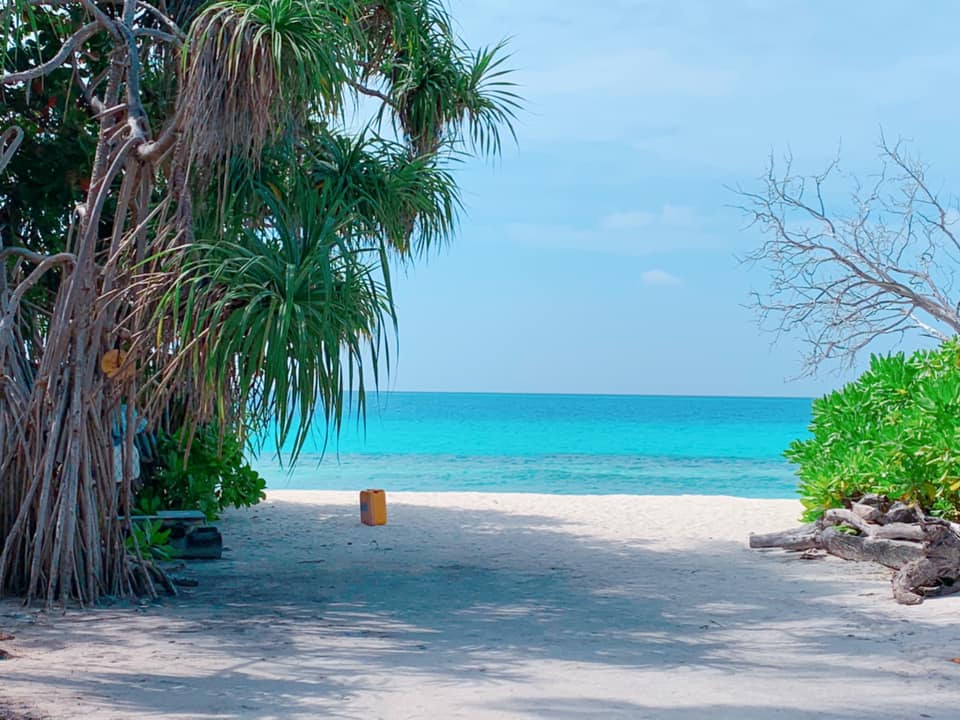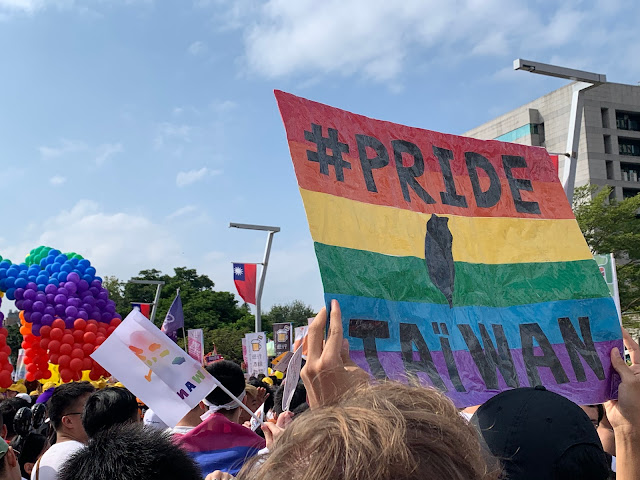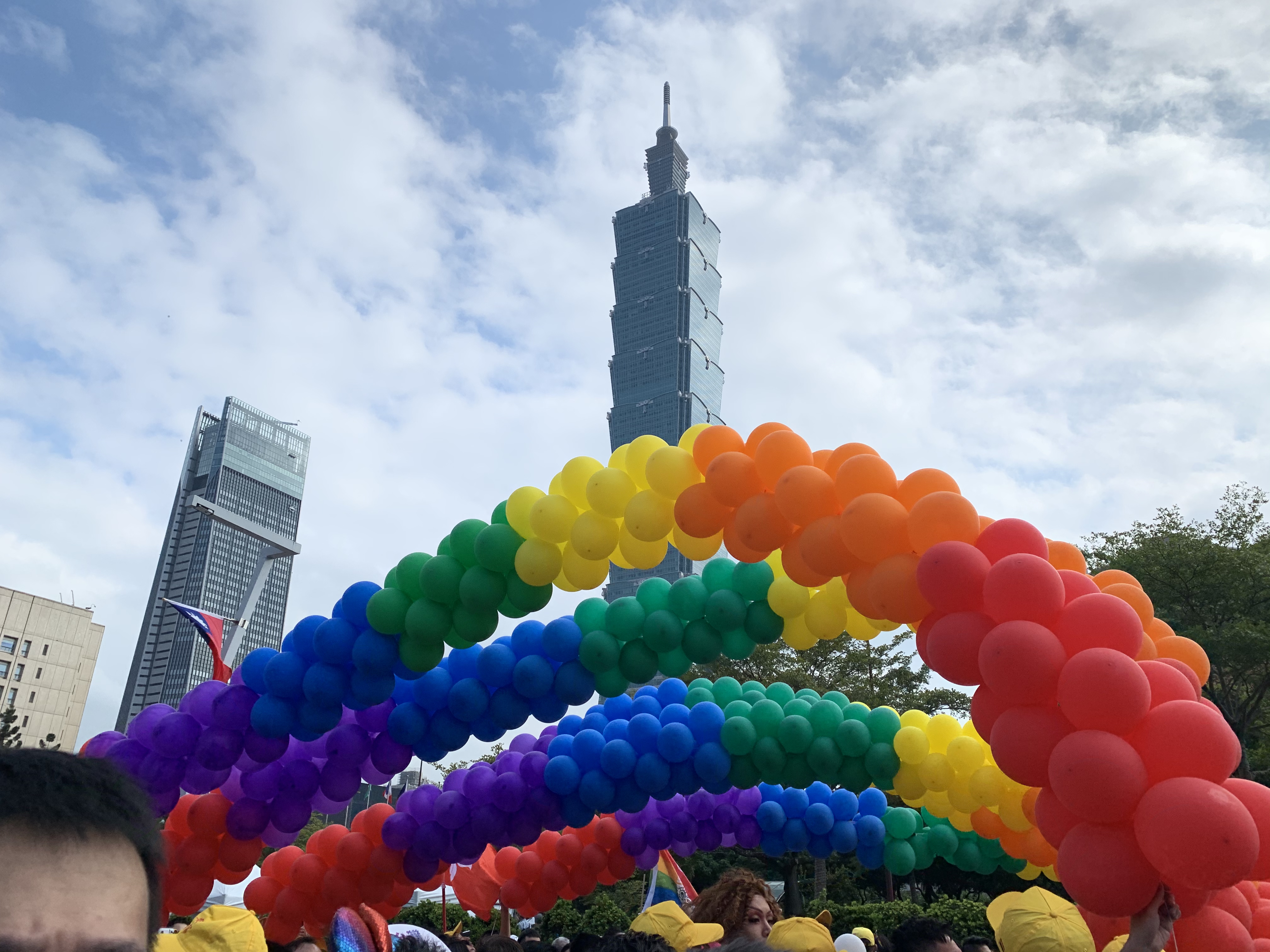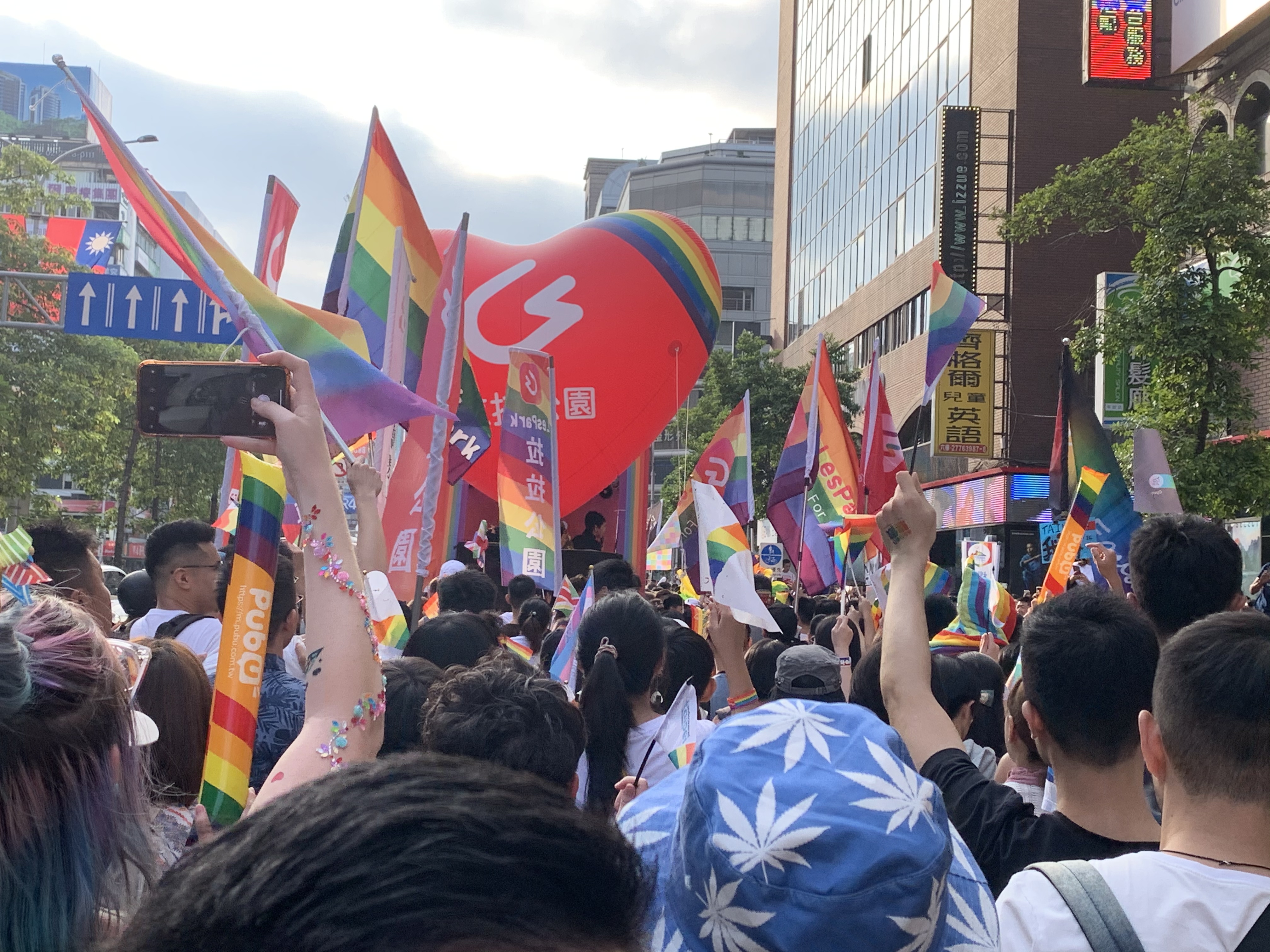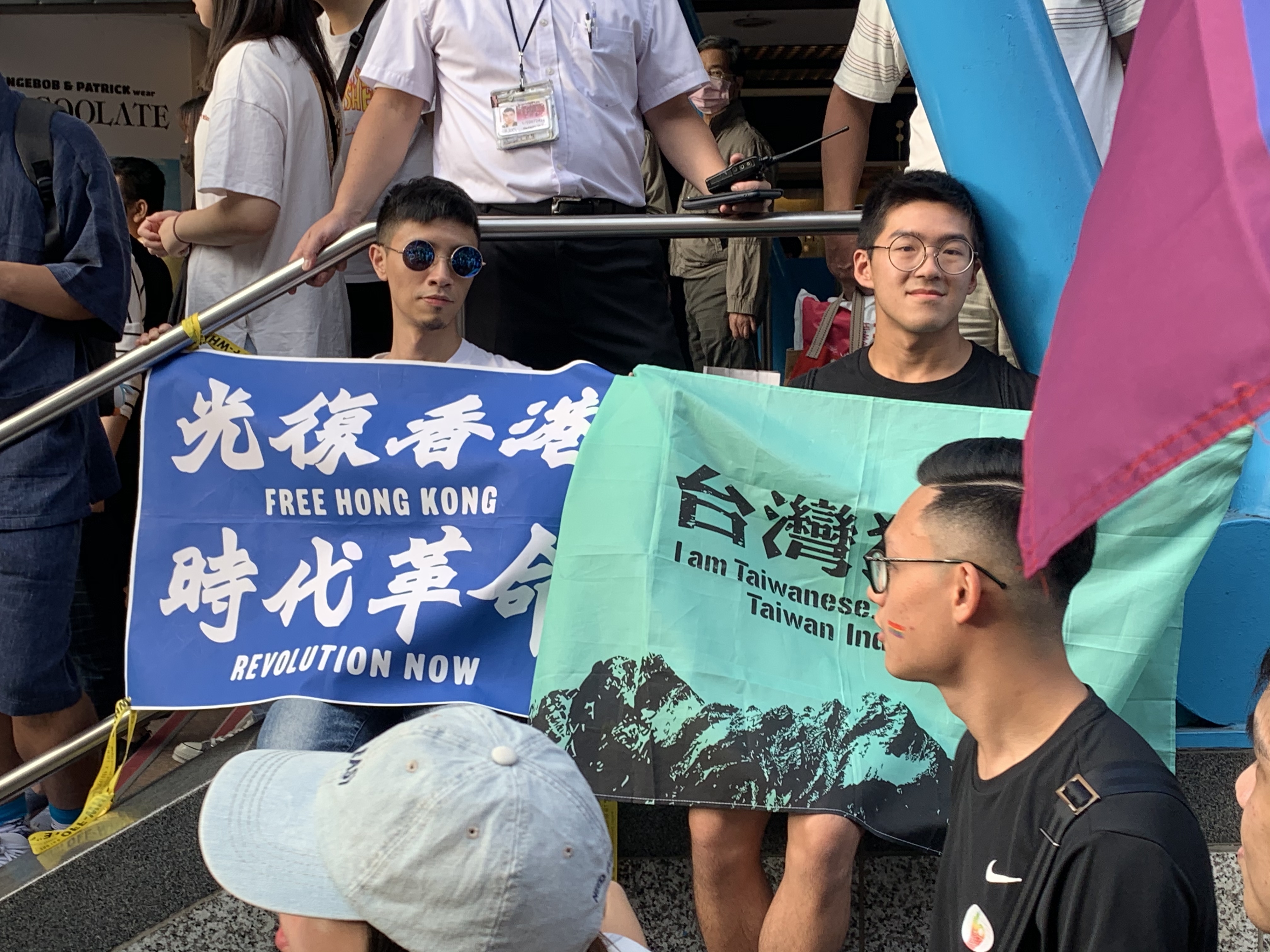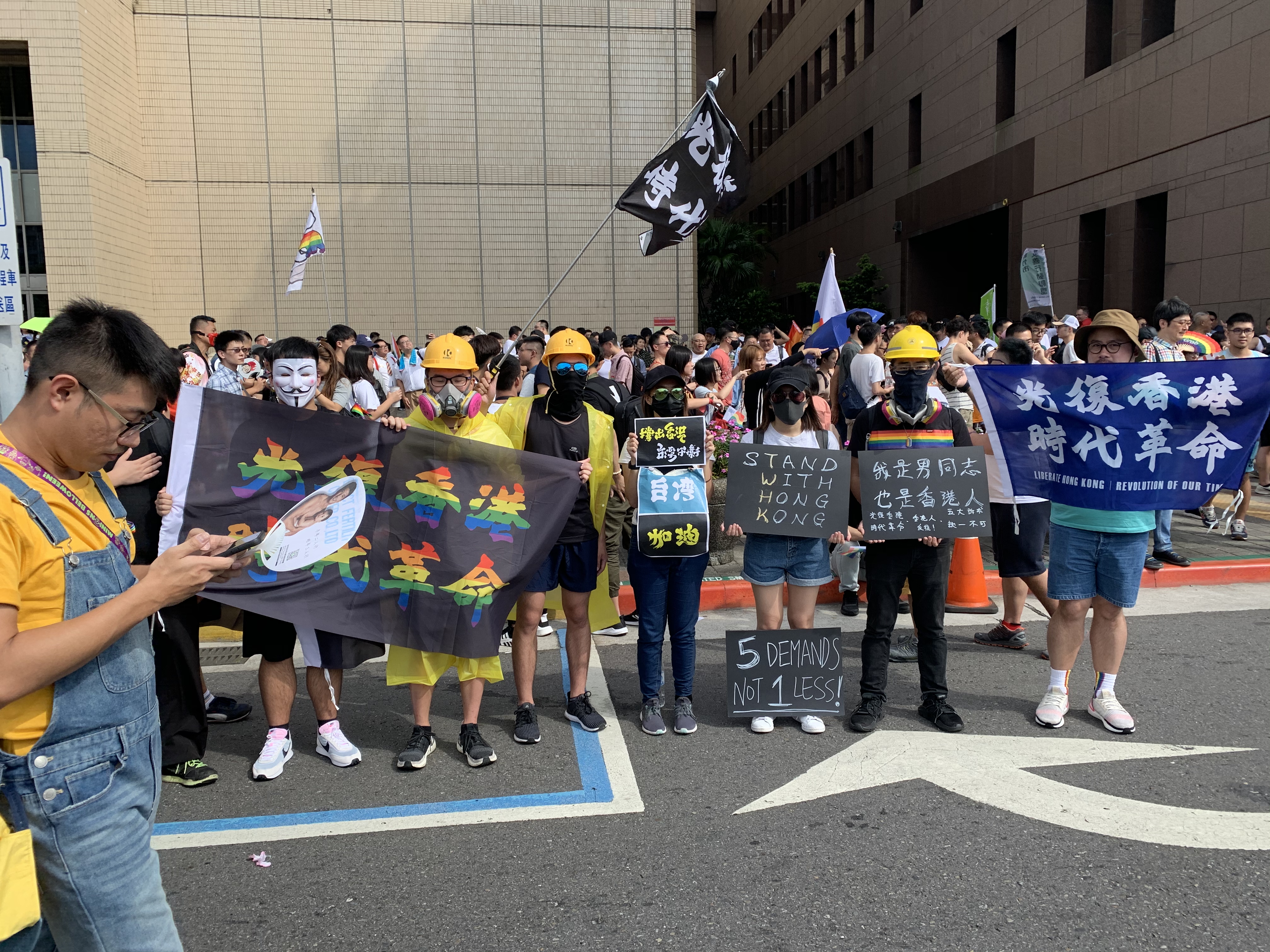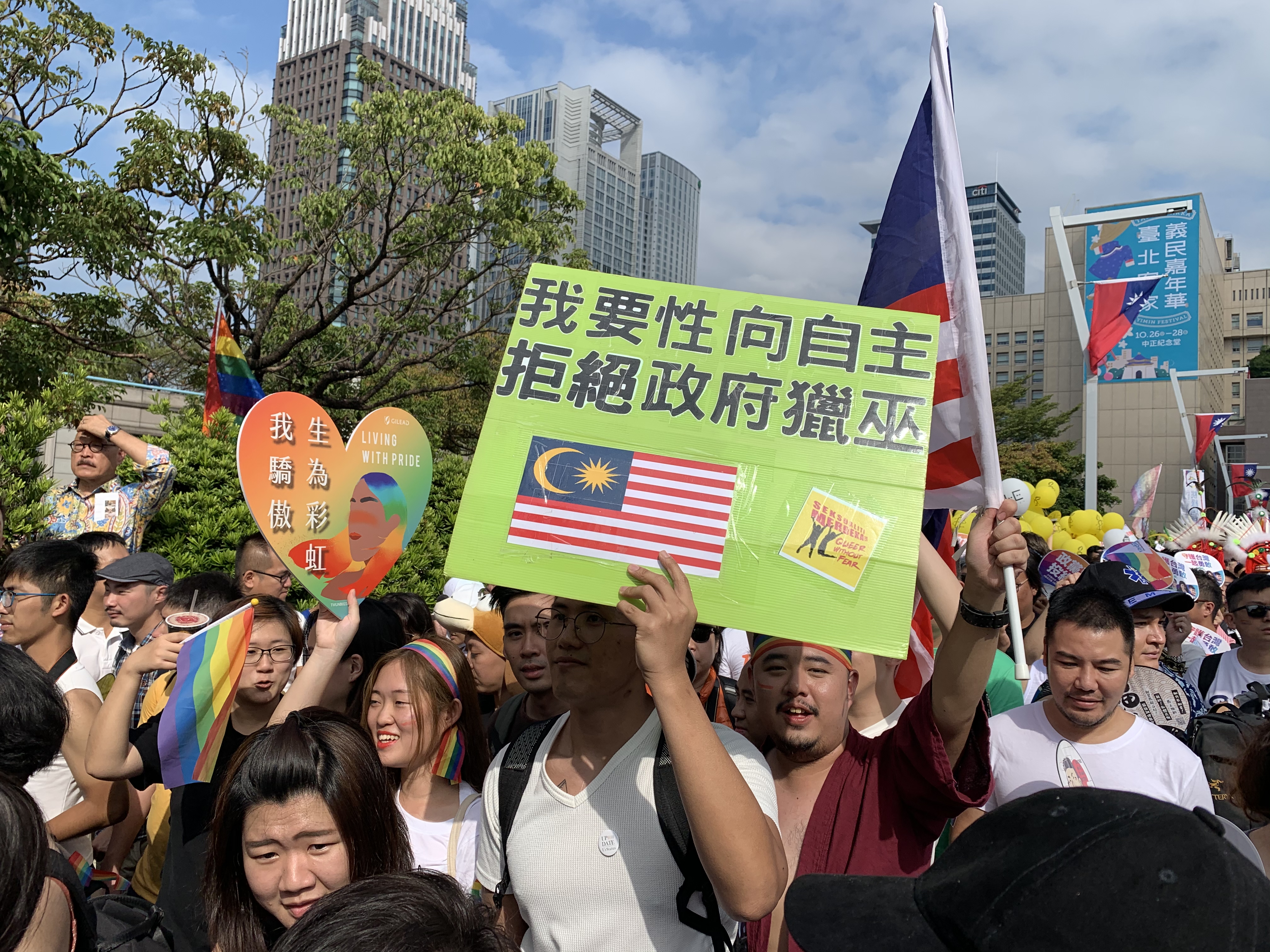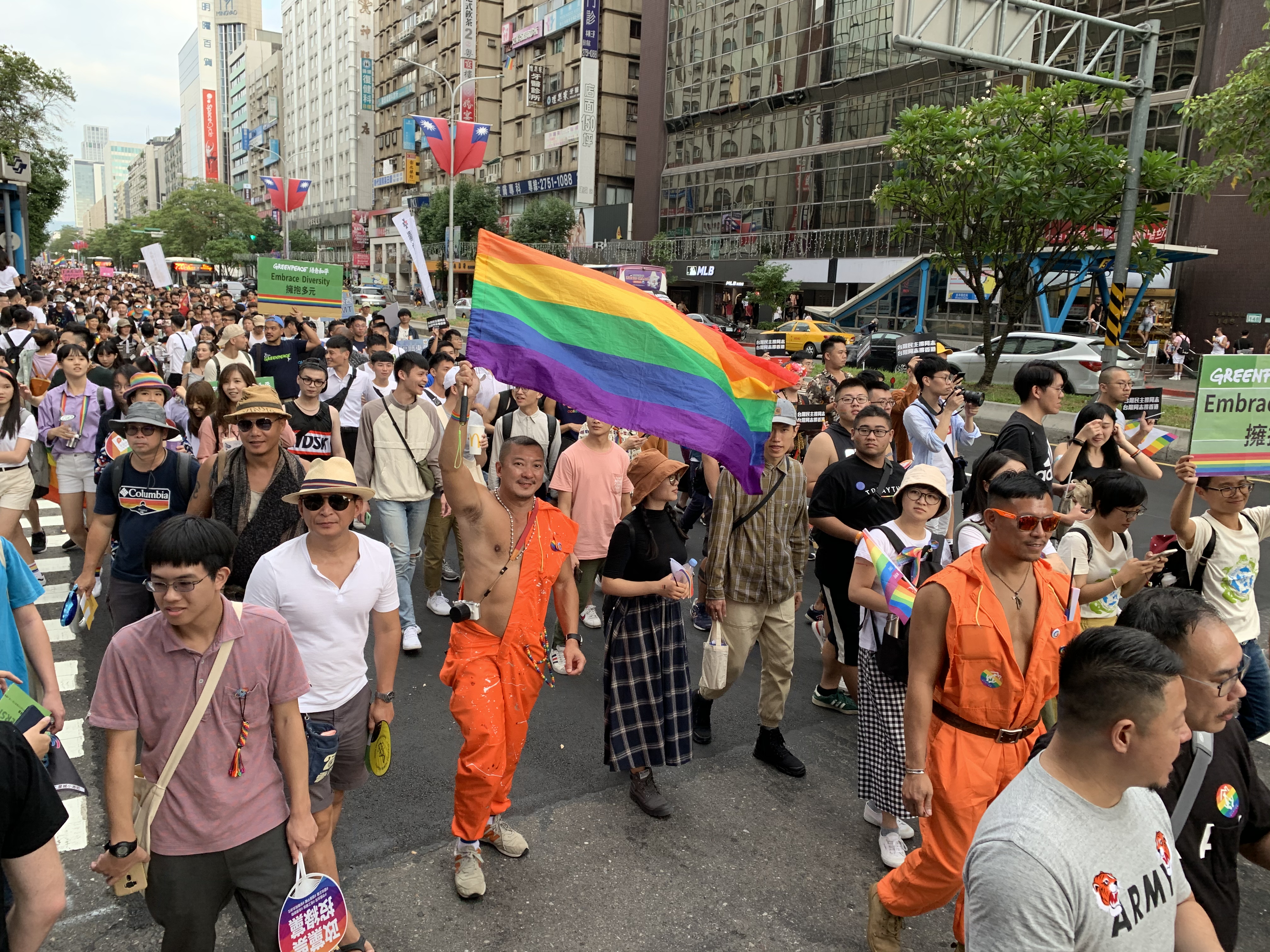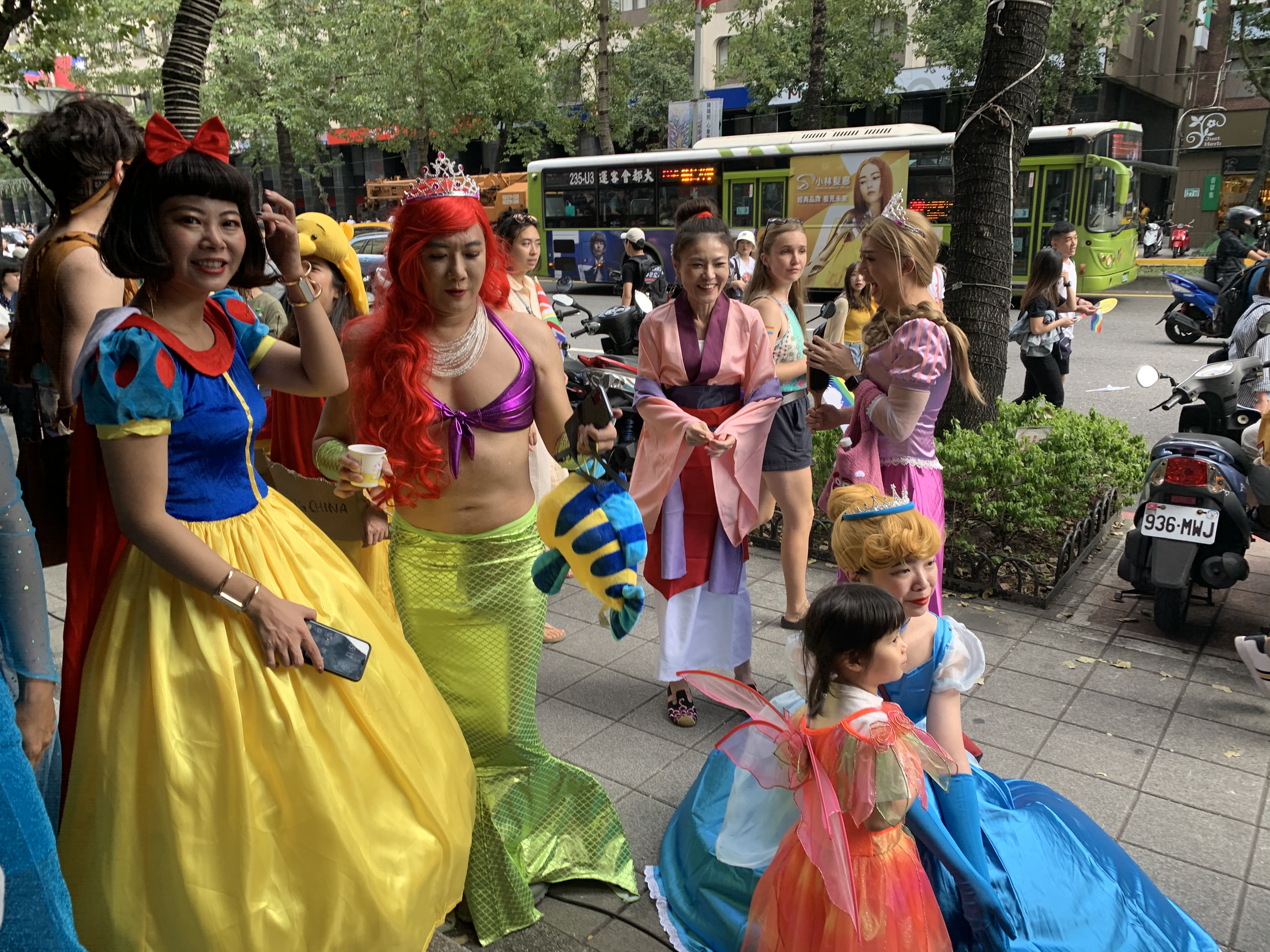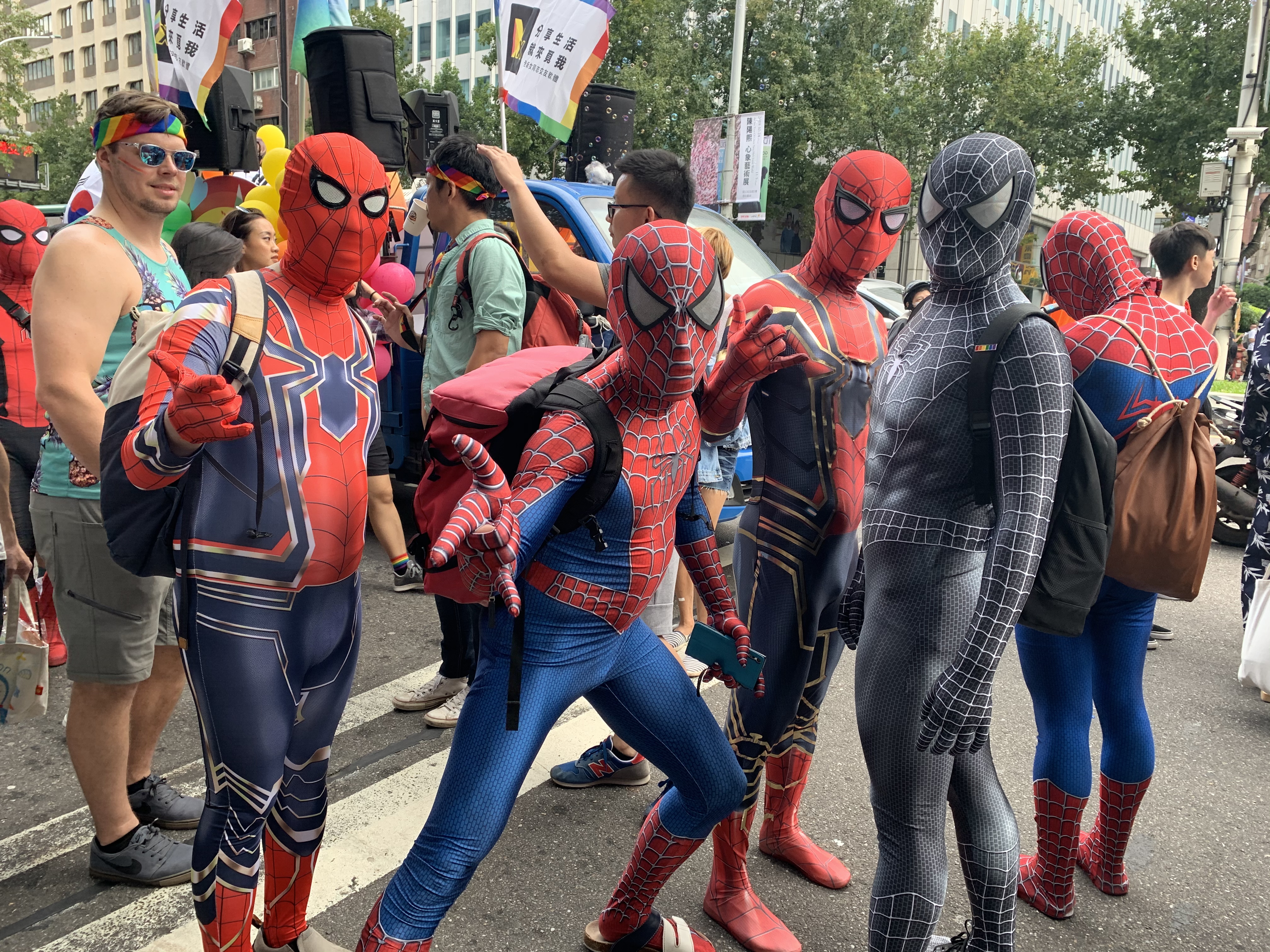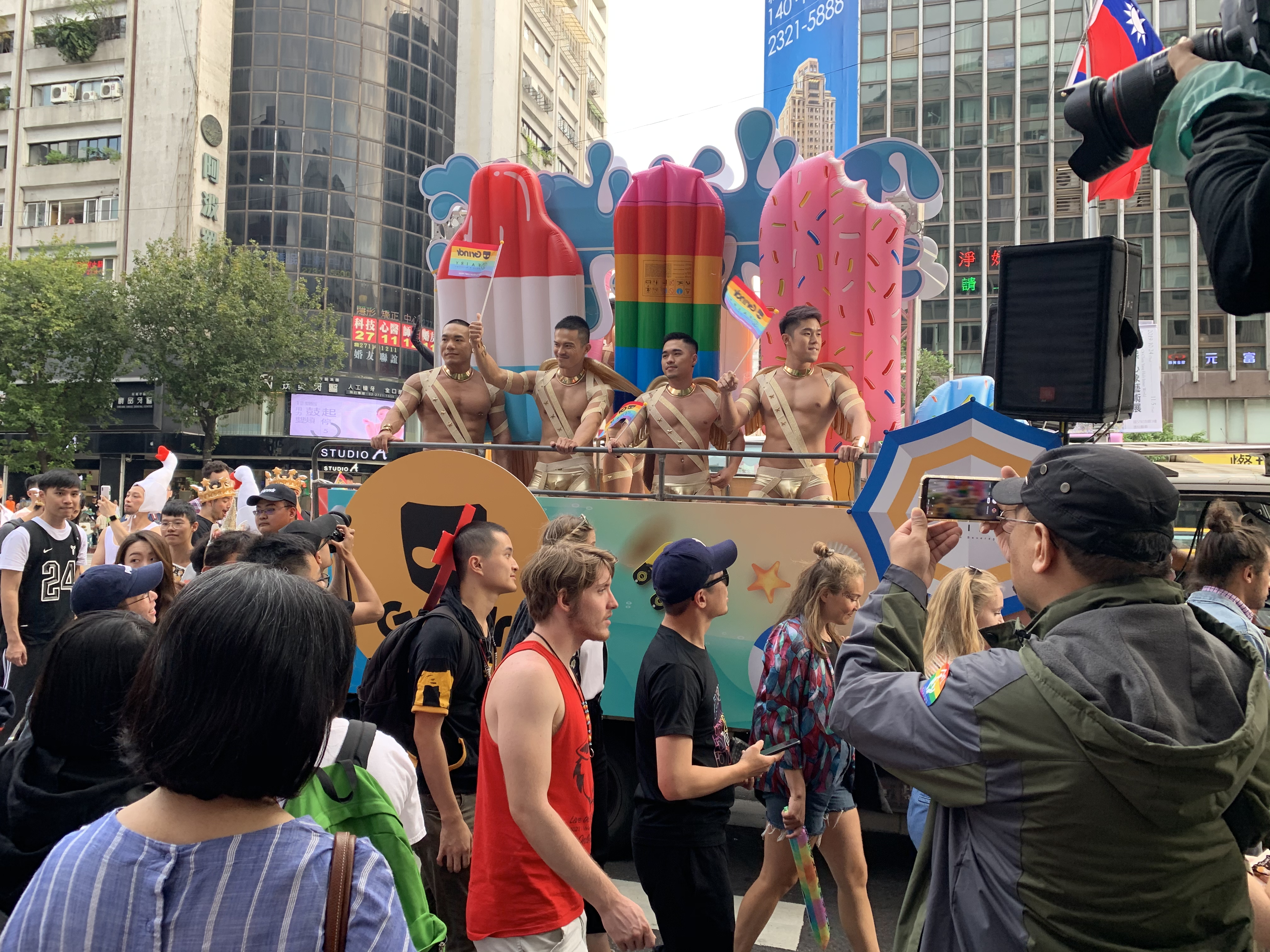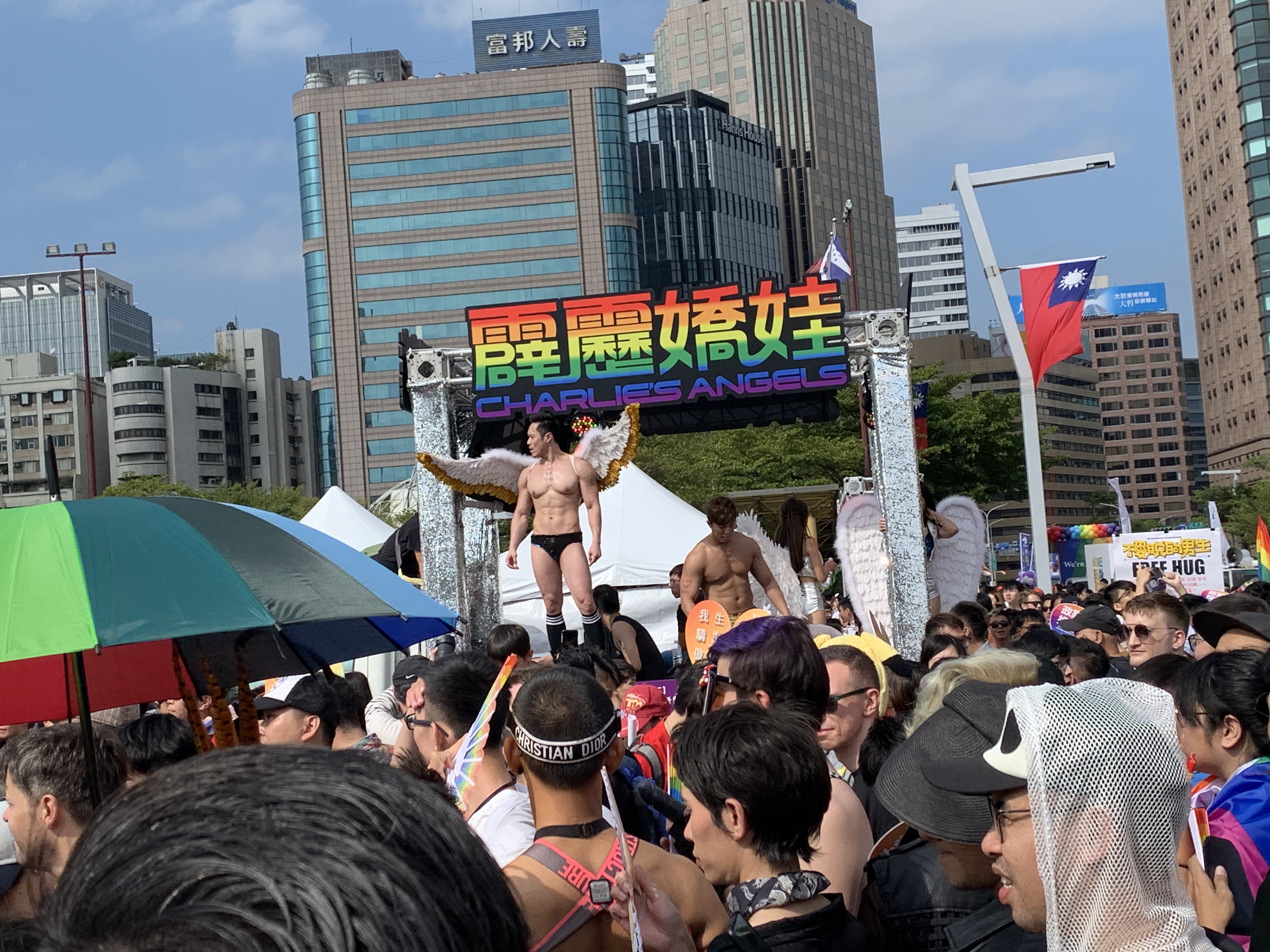I mean...no, but let's talk about it.
This past weekend, Taiwanese American drag queen Nymphia Wind won RuPaul's Drag Race, and everyone I know in Taiwan went mad with joy. From friends' pictures (I was at home, being boring), I could see Ximending erupting into a party. She is amazing, by the way.
It was also a massive soft power win for Taiwan. The type of soft power that a thousand politicians brainstorming in a thousand breakout sessions for a thousand years could not have engineered. Taiwan is in the international news right now on its own terms -- not amid rising tensions with China -- showing that we need drag queens, and black metal bands, theater festivals and the support of pro basketball players. No amount of ads on the side of buses will ever generate this much buzz.
You might be tempted to leave China's ongoing bullying of Taiwan out of all this, but Nymphia doesn't seem to be. After winning she exclaimed "Taiwan, this is for you" and openly calls Taiwan a country. In her acceptance, she said to "live fearlessly" -- perhaps not intended as a nod to Taiwan's refusal to give in to China's threats, but it sure felt relevant.
Notably, even the international media who reported her win, identity and calling Taiwan a 'country' continued in their own writing to label Taiwan as merely an island. They couldn't bring themselves to call Taiwan what their subject herself calls it.
The media is incorrect, by the way: yes, the main island is also 'Taiwan', but Taiwan as a country is not an island, it's an archipelago. Editors, get your act together. Reporters, chastise your editors!
I've already tweeted that we can all see how culturally different China and Taiwan are by the fact that President Tsai congratulated Nymphia on Twitter (the only thing I will deadname) -- something Xi Jinping would never do if a Chinese or Chinese-American drag queen had won.
Even if they said "China, this is for you!" Especially if they said that, I bet. He'd hate the notion that China or Chinese culture might be associated with drag.
In fact, the very idea that Xi or the CCP would embrace drag or anything associated with the LGBTQIA+ community almost does not compute. It would never happen. Beijing, which certainly wants to dominate the world both culturally and literally, doesn't even seem to be aware that these spaces and communities exist and are vectors of soft power, let alone want big soft power wins or representation.
Of course, discussions of her win are, according to the Washington Post, being downplayed in China:
In fact, Chinese fans of “RuPaul’s Drag Race” seem to be going out of their way to avoid talking about Nymphia Wind’s success, apparently afraid of being caught up in the escalating tensions across the Taiwan Strait. “Drag Race” fan accounts on the Chinese microblogging site Weibo said they would minimize discussions about Nymphia to “protect their nascent drag scene.”
I can understand wanting to protect China's drag scene, but I genuinely do not think LGBTQIA+ equality in Taiwan can be divorced from China's aggression. China insists that Taiwan is Chinese, but this is one way in which China and Taiwan culturally are very, very different. There are many others.
Perhaps this is an unfair assertion. It's not like queerness is unheard of in China, even historically. It's impossible to know with much certainty what most Chinese citizens think about LGBTQIA+ issues, because it's impossible to conduct such polls in totalitarian systems which oppress those communities from the top down. I would surmise that if you did ask, most Chinese would express some form of disapproval, but it's also unfair to ignore the state's active and intentional quashing of discussion of the issue. It's like that ridiculous poll finding 95% approval ratings for the CCP -- as though it were even possible to conduct such a poll and get a valid result in China!
In other words, we won't know whether Chinese society might evolve to be tolerant of, or even embrace, LGBTQIA+ communities until the government is no longer a dictatorial nightmare. If China ever democratizes, then we'll see.
But for now, though? The CCP is trying very hard to control the Chinese cultural narrative -- to be the sole arbiters of what is and is not "Chinese culture". At this moment, that does not include anything that Nymphia Wind represents.
Taking it even further, those who want to force Chinese identity on Taiwan -- cultural or otherwise -- similarly do not have room in their tiny, sad worldviews for people like Nymphia Wind. Could you imagine CCP bootlicker Ma Ying-jeou congratulating her the way President Tsai did, were he still president? I can't. People like him, including everyone who shakes their cane and yells at clouds insisting that Taiwan is Chinese, ancient Chinese culture, 5,000 years, etc. etc. whatever shut up, simply do not understand Taiwan.
No matter what people like Ma and Xi shriek about Taiwan and China sharing a culture, they fundamentally misunderstand what culture is. Either they think it's just blood and DNA (it isn't), or that every nation or culture requires an associated ethnicity (they don't), or they point to fairly superficial manifestations of culture like architecture or holidays or even language.
Culture is so much more than that: it's the means by which a group of people understand the world. Metaphorically speaking, it's a lens. And not just the outside world: culture is the lens through which you see your own community's touchstones, including architecture, holidays and language. It's what those things mean to you. It's how you relate to others, and how you treat others. In this case, it's how your country generally sees and treats its LGBTQIA+ community. In this, China and Taiwan are simply not the same.
It's not like LGBTQIA+ acceptance is incompatible with various Asian cultures. Thailand is inching closer to being the second Asian country to recognize marriage equality. We may see it within the year. Singapore, which pretends it's a full democracy but, well, isn't, has finally been making moves in the right direction. Even Japan is figuring this out, with most Japanese supporting marriage equality. There are already openly-operating activist networks there. With luck, we'll see it happen there within the next decade. With a lot of luck, in the next five years. A girl can hope, anyway.
In Taiwan, the first Asian country to legalize same-sex marriage no matter how much WaPo wants to demote it to an island, it's not necessarily just the young anymore:
While Nymphia Wind is a role model for younger queens, she’s trying to reach a wider — and older — audience in Taiwan.
She hosted a groundbreaking drag show at a Taoist temple in Taipei in October, unfurling a giant rainbow flag from a pagoda-like stage as young and old celebrated a queen who, as she put it, had “descended from heaven to bless the queer mortals.”
“Old people are my target audience. I just feel like they could have a bit more fun, you know?” she said in an interview after the temple performance.
Such an evolution is clearly possible in China, it's just not likely as long as the country is ruled by brutal, reactionary genocidaires who want to control not only their own country's cultural narrative, but also Taiwan's.
Remember that famous line from Princess Leia? The more you tighten your grip, the more star systems will slip through your fingers. The more the CCP insists on defining Chinese culture and then demanding that Taiwan follow along, the more Taiwanese will continue to live fearlessly.


